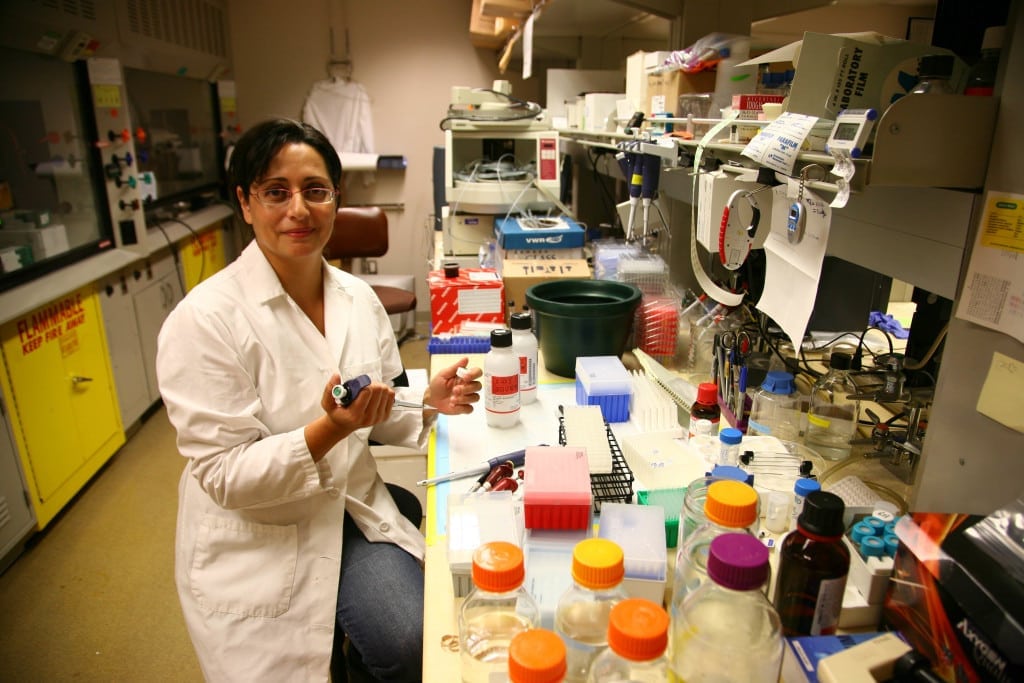
UW School of Pharmacy and UW Medicine bring population and basic science together for novel approach to drug research
Heart disease remains a leading cause of death in the United States. While there have been advances in treatments, it is hard to know if someone is at risk for a heart attack until they show symptoms—which for many is too late. Researchers at the UW School of Pharmacy (UWSOP) and UW Medicine’s Cardiovascular Health Research Unit (CHRU) hope to change that.
Rheem Totah, Associate Professor in UWSOP’s Department of Medicinal Chemistry, is the co-lead investigator on two NIH funded grants totaling almost $6M with faculty from CHRU. Totah and Nona Sotoodehnia MD MPH (Cardiology) will co-lead “CYP2J2 Mediated Eicosanoids in Arrhythmias and Sudden Cardiac Arrest.” Totah and Rozenn Lemaitre PhD MPH (Internal Medicine) will co-lead “Epoxyeicosatrienoic acids, diabetes, and cardiovascular disease.”

Collectively, these two grants will provide comprehensive information on the epidemiology of epoxyeicosatrienoic acids (EETs) in three large National Heart, Lung, and Blood Institute of the National Institutes of Health (NHLBI-NIH) funded prospective studies, including association with cardiovascular and cardiometabolic disease outcomes. The projects will additionally investigate the molecular mechanism of EETs protection, discover pathways that regulate EET biosynthesis in cardiac tissue, and identify EETs-related pathways affected by diabetes, with the ultimate aim of identifying a novel, potentially modifiable drug targets to improve cardiovascular health.
“These grants perfectly merge population and basic science so that we can comprehensively elucidate the role of EETs in cardiovascular disease and diabetes complications,” said Totah. “The two grants were high risk-high reward and we are excited that they were selected for funding.”
The first study, with Totah and Sotoodehnia, brings together population and basic science to identify a possible biomarker to predict and prevent sudden cardiac arrest. This step is followed by animal and cellular work to determine druggable pathways affecting EET biosynthesis. Using a novel approach, Totah’s team identified a possible marker that could indicate whether or not someone has a higher risk of sudden cardiac arrest.

The second grant, with Totah and Lemaitre, will look at EETs in patients with diabetes to determine the relationship between EETs and cardiovascular disease in this population. Lower levels of EETs may be associated with increased risk of cardiovascular disease in type II diabetes patients. The investigators will also investigate the regulation of various pathways related to CYP2J2 metabolism of arachidonic acid under the stress of diabetes in human cardiomyocytes.
Totah is passionate about translational research and the opportunity to directly affect human health. “Being at the UW School of Pharmacy which is co-located with the UW Medical Center, and the unique collaborative atmosphere in UW Health Sciences allows us to do work that will make a difference in people’s lives,” she extolled.
Research reported in this press release was supported by National Heart, Lung, and Blood Institute of the National Institutes of Health (NHLBI-NIH) under award numbers R01RHL128709 (CYP2J2 Mediated Eicosanoids in Arrhythmias and Sudden Cardiac Arrest) and R01RHL130880 (Epoxyeicosatrienoic acids, diabetes, and cardiovascular disease). The content is solely the responsibility of the authors and does not necessarily represent the official views of the National Institutes of Health.
Do you want to study Medicinal Chemistry with researchers like Rheem Totah? Click here to learn about MedChem and to apply
Link to Medicinal Chemistry archived news